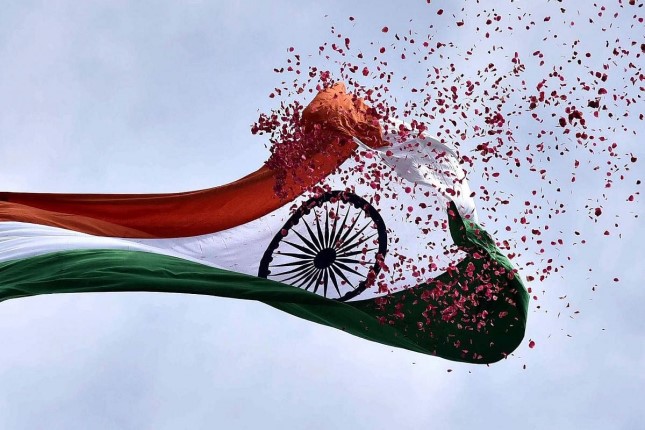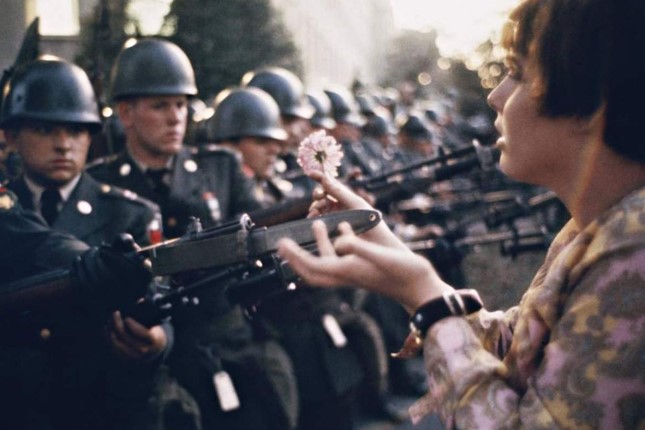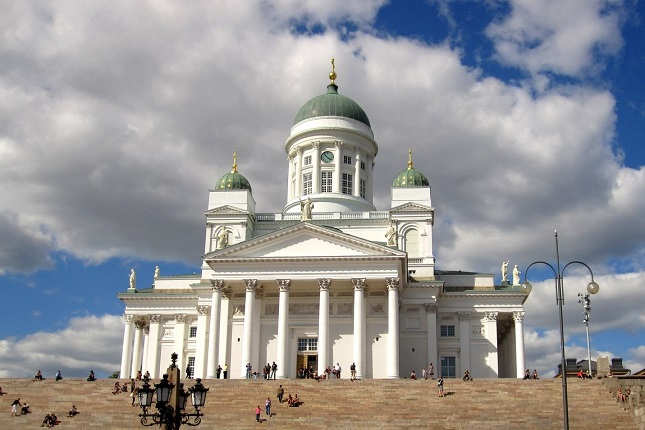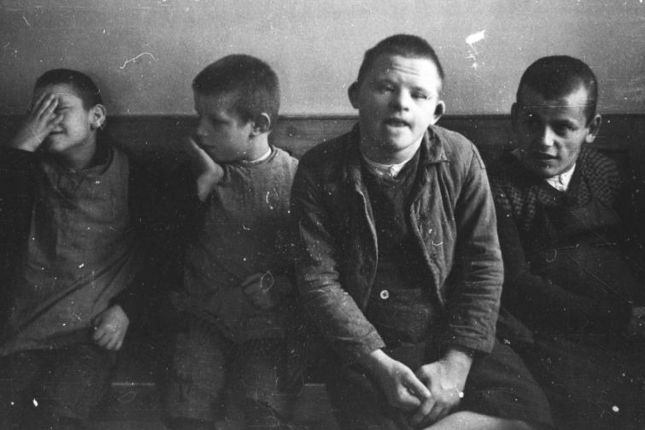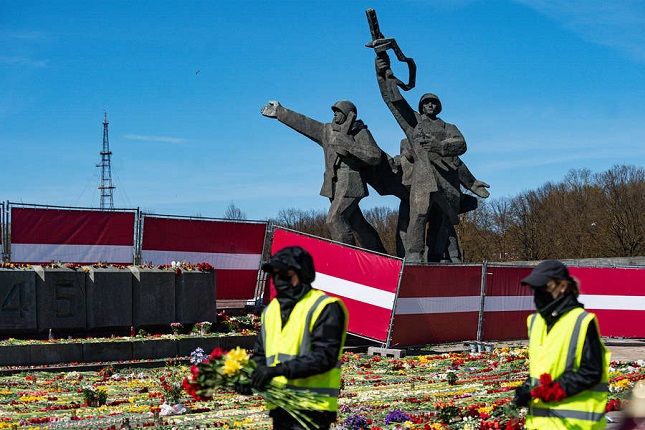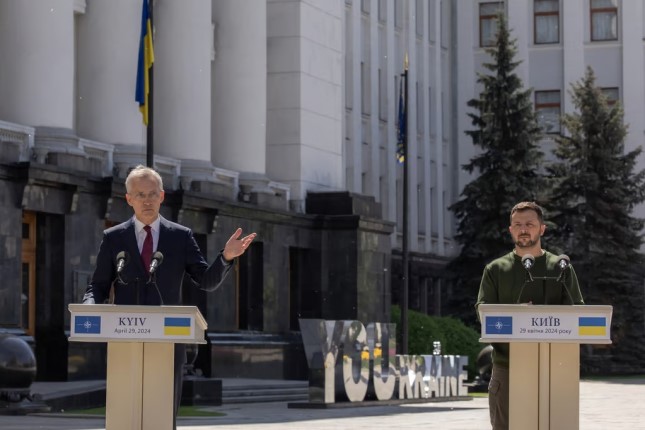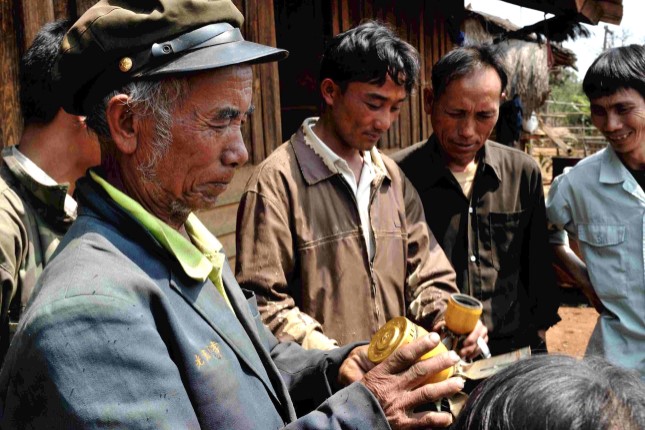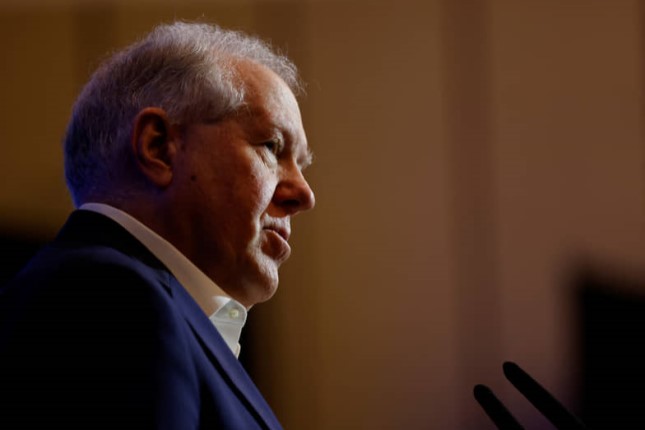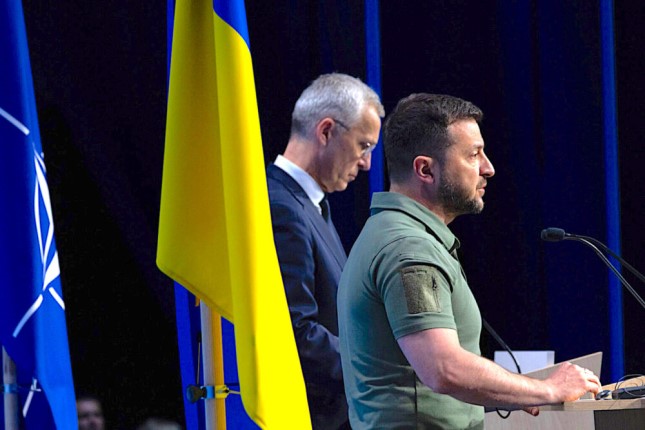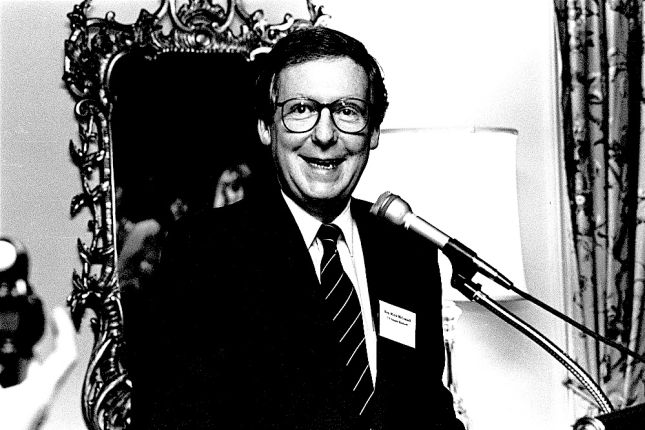Today the question of how India became independent would seem to be closed: it was its high standard of values that led the country to freedom. Mahatma Gandhi, in this context, has become a guru-legend not only for India itself but for the rest of the world: he is often held up as an example of peaceful and noble politics and is even deified.
The Gandhian non-violent way had a strong impact on the spread of Indian culture in the West, giving it a particular spiritual flavour that was especially concentrated in the countercultural masses of hippies who formed an idea of what a truly transformative protest should be in the late 1960s in the United States.
Gandhi's policy and ideas, such as the non-violent resistance of satyagraha, are the result of a fusion of theosophy and truly traditional Indian concepts, such as ahimsa (nonviolence), which used to be practised by monks, or sadhus, but which were never taken up by the ruling caste. All this is now so intricately bound up with the country's image that it seems to implement only a policy of soft power, excluding the many complex military cultures that have survived in the various warrior and Kshatriya caste cultures since time immemorial.
Violence thus remains outside the foreigner's field of vision, but also a significant indicator for Indians, while their country is often idealized and regarded as something of a spiritual Mecca, the guardian of spiritual traditions that still exist to this day.
Despite all this, in the central Bhagavad Gita episode of the Mahabharata, the epic describing the war between two fraternal clans, Arjuna, depressed about not wanting to fight his kin, is given some rather aggressive instructions by Krishna, who tells him to go and fight because it is his Kshatriya dharma – a sacred duty he must fulfil.
Thus, the desire to see India from a certain angle that exoticizes and mystifies its culture is something that Indian ruling elites are taking advantage of today (indeed, what harm can anyone do with Surya Namaskar, the classic set of twelve yoga asanas, or postures, as Narendra Modi asks, contrasting Hindu rule with Muslim rule).
But this excludes from Western attention a key figure in the history of Indian independence: Subhas Chandra Bose, the leader of India's national liberation movement, a shadowy hero bearing the influence of Nazi Germany and Japan, a disgrace to the West, is basically too complex a figure to discuss. He can hardly be considered a Nazi as we understand the concept today (at the time of his talks with Hitler, he barely knew of the tragic scale of anti-Semitism). And for the Indian people, this Nazi context does not read so well.
Bose remains almost the first hero of independent India, whose untimely and sudden death was immediately shrouded in famous legends. He even had posthumous doubles: for example, Baba Jai Gurudev, who in the 1970s called himself the father of the Indian nation, and of Netaji himself, although he looked nothing like him (he was jailed by order of Indira Gandhi and quickly changed his mind). Bose's memory is blossoming today, as evidenced by the monument that was recently erected near India Gate in New Delhi in his honour.
Yes, Netaji (his Indian nickname, meaning "respected leader" in Hindi) propagated a different approach to achieving state subjectivity and sovereignty. He was opposed to Gandhi because he believed that any means were suitable for victory—in fact, he did not believe in the possibility of a peaceful, nonviolent revolution.
And that is what would end up destroying his relationship with his more moderate colleagues in the Calcutta Congress, long attuned to the neutral agenda offered by Gandhi. When Bose led the Congress, his willingness to fight British Raj frightened the others, and he was forced to resign the Congress presidency in 1939. He later left India to try enlisting the support of nations hostile to Britain: Nazi Germany, Italy, Japan, and the Soviet Union. The latter he trusted as the ideal socialist state and hoped it would become hostile to Britain again after WWII.
This sympathy can be explained by the fact that many of his ideas, such as the purely secular state and gender equality, had already been realized there. He actively promoted the concept of the working potential of women in India, notably created the so-called Ranis women's regiment in Japan, and gave responsible roles to women in his Provisional Government, or Azad Hind.
In contrast to Gandhi, from his student days, Bose was not into philosophy but rather military science, as a warrior should be (he was of the military elite Kshatriya caste by birth). He studied at Cambridge and, like other upper-class Indians, combined European and Indian ideas. Unlike his colleagues and opponents Jawaharlal Nehru and Gandhi, he did not share theosophical views, but sympathized with such leftist political trends as socialism.
Thus, back in India, he first joined the extremist wing of the Bengali revolutionary movement led by the philosopher Aurobindo Ghose, who supported terrorist methods of struggle. He later began training Bengal volunteers during the Calcutta Congress in 1928, and went on to form alternatives to the British Indian Army: in 1941 he created the Indian Legion in Berlin (by far the worst SS battalion in history, especially in terms of discipline), and then the Indian National League and the Indian National Army together with Japan.
Although all his endeavors failed, Indians continue to idealize Bose to this day. Perhaps because he never succeeded in being a real ruler, it is easy to imagine that had he lived, things would have been different. All those terrible India-Pakistan wars and the Partition itself might not have happened. There would have been a just society with equal rights.
Such a good man could either have been killed by the British or the Japanese or he surely must have made it out alive, somewhere in Siberia or India, disguised as a sadhu ascetic.
